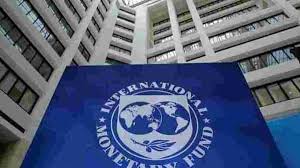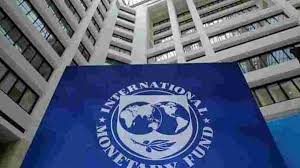
While pointing out to a number of emerging signs of a stronger global economic recovery, the second most important official of the International Monetary Fund on Saturday also warned of risks that still pose a threat to global recovery which includes the emergence of multiple variations of the novel coronavirus.
Its previous forecast in January of a global growth of 5.5 per cent would be updated by the Fund in April which will reflect additional fiscal stimulus spending in the United States, said IMF First Deputy Managing Director Geoffrey Okamoto. No further details were however provided by the official.
Concerns about the growing divergence between advanced economies and emerging markets, as the Fund estimates that an additional 90 million people have fallen below the extreme poverty threshold since the pandemic began, were raised by Okamoto in a speech to the China Development Forum.
The Chinese economy had already made a recovery and was at pre-pandemic growth levels and this has been achieved by it before all the large economies even though there was some concern about investment in private consumption in the economy, Okamoto said.
However the Fund has noted troubling signals of the widening gap between advanced economies and emerging markets outside of China, he said.
There would be a 22 per cent drop in cumulative income per capita in emerging and developing countries between 2020 and 2022 compared to what it was prior to the beginning of the pandemic, the IMF has projected. While keeping China out of that list, the Fund said that this phenomenon will push mode people into poverty.
At the same time Okamoto said that the overall outlook for the global recovery was still “exceptionally” uncertain and added that the Fund was not sure about the that the Covid-19 pandemic would last because of the very uneven access to vaccines in both the advanced and emerging economies.
There was little scope remaining with some countries to boost spending to fight the pandemic and mitigate its economic impact among some countries – particularly those low income countries that are also burdened with high levels of debt, Okamoto said.
Citing recent increases in bond yields spurred by market expectations of an earlier withdrawal of monetary stimulus, he said that vulnerabilities in countries with high public and private debt would be exacerbated by tighter financial conditions.
He said the crisis could also leave deep scars.
He said that in the past, even five years after the beginning of a recession, the output of some of the advanced economies have seen it still lower by almost 5 per cent from the pre-recession levels and therefore this trend could be worse in countries that cannot afford a strong macroeconomic response and/or was dependent on large services sectors that have been more impacted by the Covid-19 pandemic.
(Source:www.moneycontrol.com)
Its previous forecast in January of a global growth of 5.5 per cent would be updated by the Fund in April which will reflect additional fiscal stimulus spending in the United States, said IMF First Deputy Managing Director Geoffrey Okamoto. No further details were however provided by the official.
Concerns about the growing divergence between advanced economies and emerging markets, as the Fund estimates that an additional 90 million people have fallen below the extreme poverty threshold since the pandemic began, were raised by Okamoto in a speech to the China Development Forum.
The Chinese economy had already made a recovery and was at pre-pandemic growth levels and this has been achieved by it before all the large economies even though there was some concern about investment in private consumption in the economy, Okamoto said.
However the Fund has noted troubling signals of the widening gap between advanced economies and emerging markets outside of China, he said.
There would be a 22 per cent drop in cumulative income per capita in emerging and developing countries between 2020 and 2022 compared to what it was prior to the beginning of the pandemic, the IMF has projected. While keeping China out of that list, the Fund said that this phenomenon will push mode people into poverty.
At the same time Okamoto said that the overall outlook for the global recovery was still “exceptionally” uncertain and added that the Fund was not sure about the that the Covid-19 pandemic would last because of the very uneven access to vaccines in both the advanced and emerging economies.
There was little scope remaining with some countries to boost spending to fight the pandemic and mitigate its economic impact among some countries – particularly those low income countries that are also burdened with high levels of debt, Okamoto said.
Citing recent increases in bond yields spurred by market expectations of an earlier withdrawal of monetary stimulus, he said that vulnerabilities in countries with high public and private debt would be exacerbated by tighter financial conditions.
He said the crisis could also leave deep scars.
He said that in the past, even five years after the beginning of a recession, the output of some of the advanced economies have seen it still lower by almost 5 per cent from the pre-recession levels and therefore this trend could be worse in countries that cannot afford a strong macroeconomic response and/or was dependent on large services sectors that have been more impacted by the Covid-19 pandemic.
(Source:www.moneycontrol.com)





